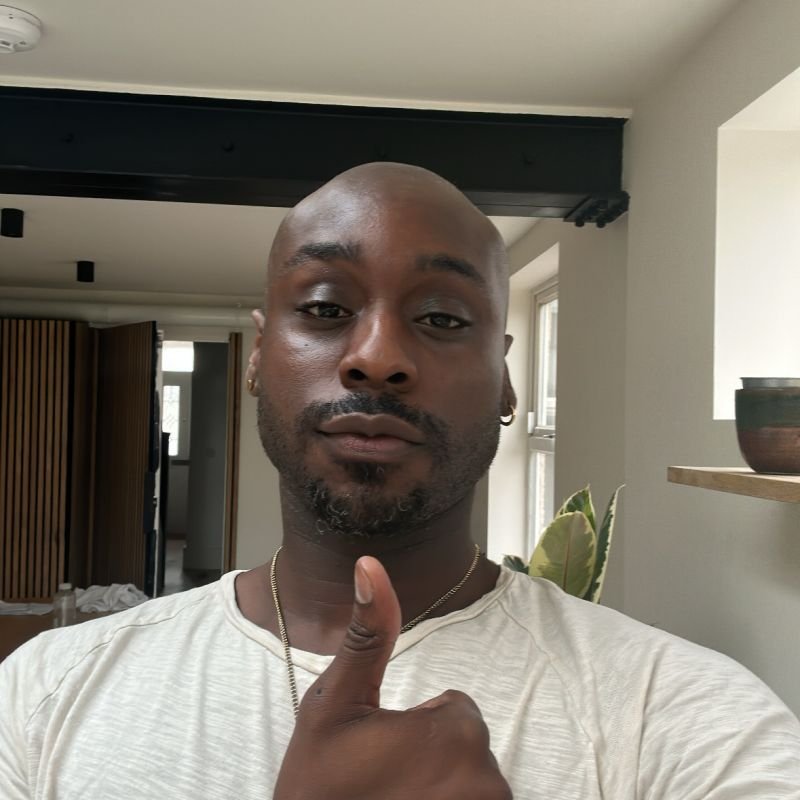Trustee Week Spotlight: Ashley Alleyne
In celebration of Trustee Week, we’re delighted to introduce Ashley Alleyne, one of The Together Project’s trustees.
Ashley joined us almost a year ago, bringing a wealth of experience and a passion for diversity, equity, and inclusion (DEI). He’s already made a remarkable impact, helping us build practices that are as inclusive as possible for both our team and the communities we serve. Here, Ashley shares his insights into why he joined The Together Project, his approach to inclusion, and what he hopes for our future.
What inspired you to join The Together Project?
Louise, Founder and CEO of The Together Project, and I worked together in the past and I've admired her vision, the charity, and the impact it's having on the community for years. I felt truly honoured to be invited to join the board of such passionate people and to contribute to its inclusive mission. My role is to help build practices that are as inclusive and fair as possible, both for the people within the charity and the people it serves.
Why is inclusion important to you?
Inclusion isn’t just a value for me; it’s a necessity. Fairness is crucial for any thriving organisation. We live in a wonderfully diverse world, and supporting diversity among funders, employees, volunteers, and communities isn’t just common sense—it’s essential for everyone’s wellbeing.
Can you tell us about The Together Project’s Inclusion Strategy Workshop?
The workshop’s purpose was to turn shared inclusive ideals into tangible, impactful actions. We explored the barriers faced by the team and our communities, identifying practical steps and responsibilities for tackling each. At The Together Project, inclusivity is about much more than words; it shapes the way we run sessions, communicate with families, and even approach recruitment. This workshop was designed to transform The Together Project’s natural culture of caring into actions that foster inclusion in all we do.
I only work with clients who want to do more than ‘sound inclusive’. Inclusivity has broad implications in an organisation so my goal was to prevent trying to 'boil the ocean'. We shaped shared goals and developed tools and processes that make inclusion a natural outcome of how the charity works.
What challenges did you encounter, and what did you learn?
One of our biggest challenges was that everyone came with different understandings of inclusion, different ideas of what diversity meant, and different perspectives on what solutions might look like and where they could be applied. We worked through these differences and created a shared set of concepts and terms, forming the foundation of The Together Project’s ‘Inclusion Glossary’. This ensures everyone, from new staff to trustees, aligns around a common language. Once we were all on the same page, we explored ideas for fostering inclusivity both within and beyond the organisation.
Through this process, I discovered the wide-reaching impact The Together Project already has and a lot about how care facilities support and relate to the spaces around them.
Why is DEI essential for The Together Project?
Diversity and inclusion aren’t just aspirations, they reflect the reality of life. People are diverse, it's a reality of life. Prioritising DEI is simply an admission that an organisation wants to be as good for as many people as possible, and is willing to consider them in material ways (big and small, public and private) to make that happen.
At The Together Project, breaking down intergenerational barriers should be fun, accessible, and rewarding for everyone. Being proactive about considering people from all communities when creating spaces makes them more open and affirming, and creating a charity that knows where and how to listen means The Together Project will be able to grow with the needs of the people who make it so special.
What are your hopes for the future of The Together Project?
The Together Project’s mission is more relevant than ever, and connecting generations will only become more vital in the years to come. I’d love to see us reach even more communities, including those where English is a second language, people for who loneliness and isolation may be more acute. I think it's powerful to be able to build community while connecting with people who speak your language or are facing the same challenges in learning another one.
Do you have advice for other trustees and organisations on DEI?
To other trustees and organisations, I’d say: treat DEI as a way of operating, not just a set of ideals. Inclusion is simply good practice in today’s world, no matter the field. Diversity isn’t just a talking point, it’s a reality and recognising that benefits everyone.



